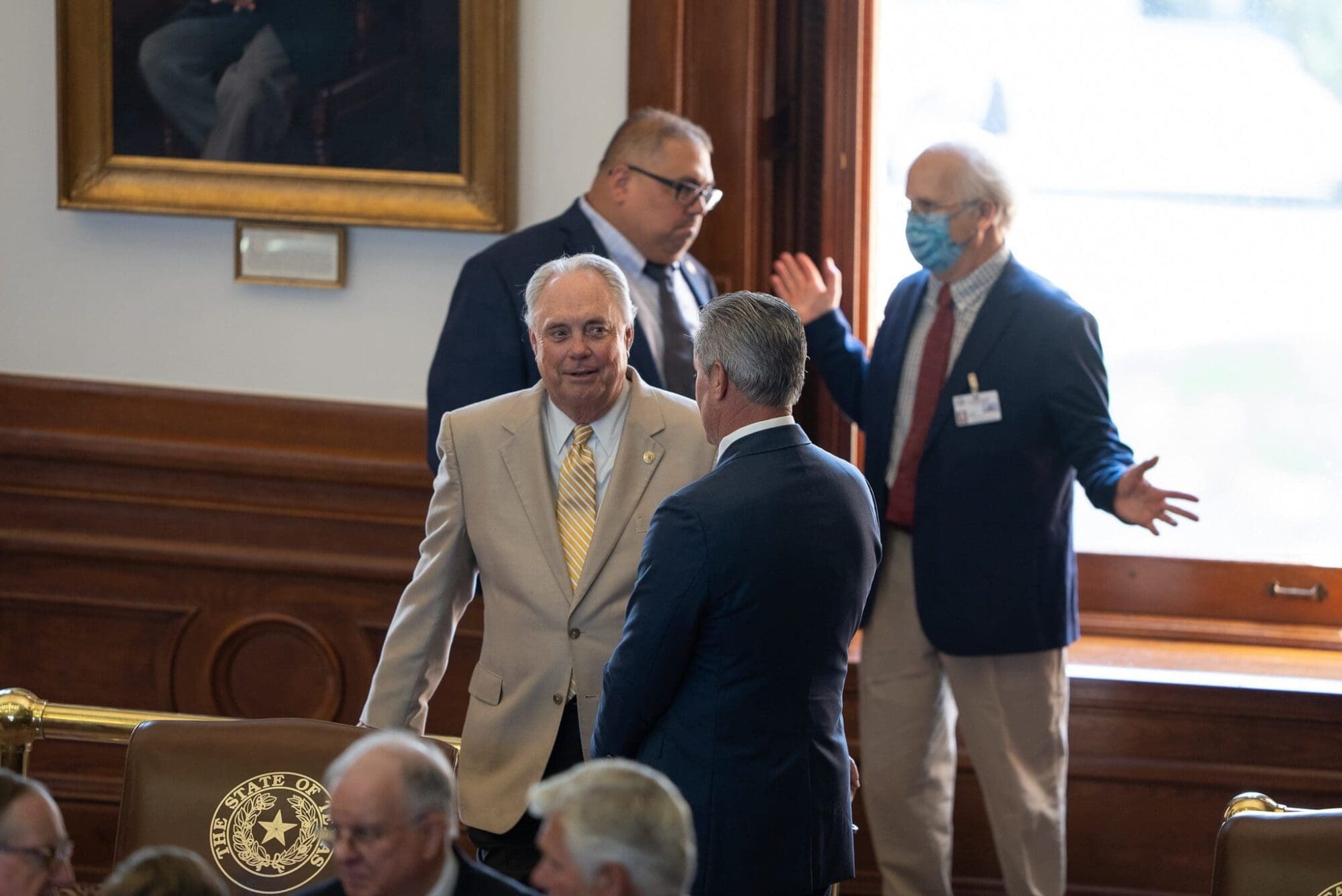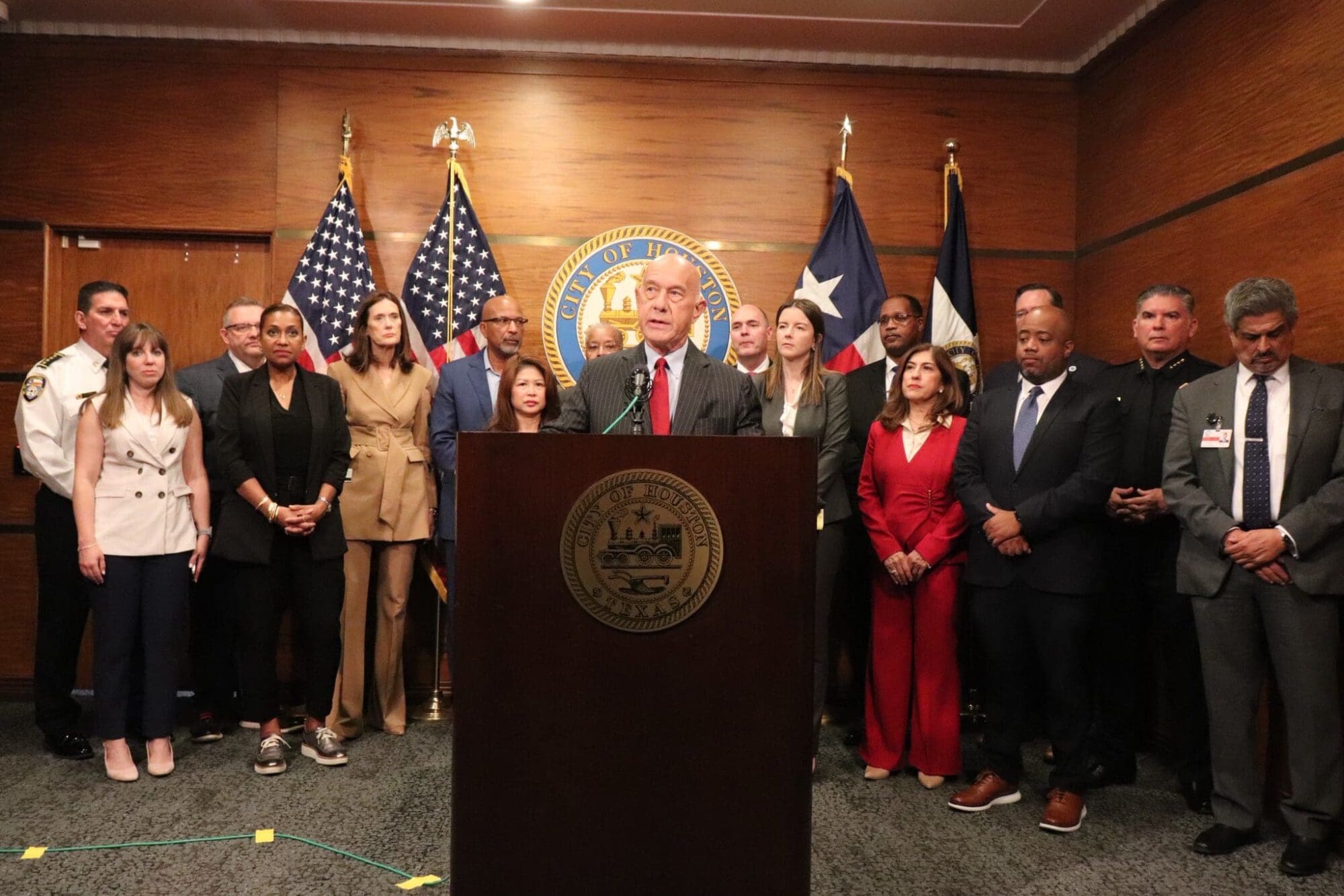This commentary is in response to an open letter from Rockwall resident Eric Bott, who expressed concern about school bonds and a tax increase.
Eric,
I appreciate your passion for your beliefs and the connections you’ve made in online groups. It’s clear from our conversations and your posts that you have strong opinions about government. While it seems you prefer sharing your views online rather than getting involved in boards or committees,
I know you did serve on the Rockwall County Strategy 2050 committee. However, some might interpret your limited attendance as a lack of interest, though I don’t believe that’s the case.
I’ve also noticed some inaccuracies in your statements, including a few about me. You often mix theory with reality, which can create confusion. I see this not as manipulative but as an attempt to fill gaps in understanding.
Let’s clarify some of these points together!
Disconnect with Voter Priorities
Bott: “Your support for policies that increase taxes and potentially limit school choice seems at odds with these overwhelming voter mandates. This disconnect raises concerns about whether our local leadership is truly representing the wishes of its constituents.”
Your mention of “overwhelming voter mandates” really only reflects the views of Rockwall Republican primary voters, of which I am one. However, I represent all 54,000 citizens of Rockwall, not just those in the Republican primary. My primary responsibility is to the people of Rockwall, not to the county, state, or my party.
Additionally, you often conflate state-level issues with local realities. For instance, while the Republican Party of Texas aims to eliminate property taxes statewide, this isn’t feasible locally due to various factors, including state mandates on school funding. Many of these mandates don’t align with how local residents prefer to operate. I believe in a “one size fits none” approach and advocate for power to be held at levels closest to individuals.
Favoring Developers Over Residents
Bott: “Under your leadership, the city council has consistently approved high-density developments, such as the 900-home project…”
I voted in favor of the project, but it was not approved. As a limited-government conservative, I strongly support American private property rights. I believe part-time council members, who may lack expertise in development, should not interfere in the process. The proposed project aligned with our Future Land Use Plan and was less dense than the plan requires. It also matched our city’s consistent 2-3% growth and the timing of upcoming FM 205 and FM 549 projects.
The failure of this proposal reflects a trend where small-town “NIMBY” attitudes hinder private property transactions, which could lead the Legislature to strip us of local control. If this continues, cities may lose their zoning authority, resulting in undesirable developments like mobile homes or overcrowded lots, leaving us powerless to manage growth effectively. I hope we can recognize the long-term consequences of our current actions.
Bott: “…and the proposed 500 apartments by IKEA.”
These were a small component of a much larger commercial project that would serve to offset our property taxes. This seems like something you would support. I detailed the significant benefits here.
Bott: “These decisions have accelerated population growth without ensuring developers contribute adequately to necessary infrastructure…”
This is completely and quantifiably false. We have a proven process for infrastructure development in the form of developer requirements and capital improvement projects (CIPs) funded jointly by state and federal grants, as well as sales tax and property tax income.
Bott: “The financial burden of supporting this rapid growth…”
I don’t consider 2–3% annual growth to be rapid. I cannot control what happens in neighboring cities, nor is stopping development the right thing to do based on the limited-government conservative approach I detailed above.
Bott: “…has been shifted onto taxpayers,…”
We are balancing that out by gaining commercial projects. See IKEA above.
Bott: “… leading to overcrowded schools and strained resources.”
We are trying to prevent overcrowded schools with the bonds. Like mortgages, we responsibly take on debt (bonds) and use our incomes to pay the notes (“I&S”). In the case of RISD, they often pay them off early and save millions in interest to the taxpayers.
Leadership and Accountability
Bott: “Your endorsement of State Rep. Justin Holland, who was not re-elected in favor of Katrina Pierson, further illustrates a pattern of supporting positions that conflict with voter preferences.”
While my personal preference for a representative with a proven track record of representing the district over special interest groups did not align with this particular primary’s votes, your statement about supporting positions in conflict with voter positions is incomplete. In other words, while your statement reflects specifically HD33 Republican primary voters, it does not reflect my full constituency.
I’m also unclear as to which of my hundreds of votes on the record to date “conflict with voter preferences.” If you could be specific here, that would make our conversation more fruitful.
Bott: “Reports indicate that our district left $109 million in state school funding unclaimed during the last legislative session—funds that could have alleviated the need for local tax increases. This shortfall is attributed to opposition against measures widely supported by our community.”
Here’s another example where the facts seem off. I don’t think you’re trying to mislead; it’s just that you may not have all the details. Let me clarify: the figure you mentioned applies to all of HD33 over two years, while Rockwall ISD represents only 20% of that area. Under the proposed bill, Rockwall ISD would have received only $4.96 million in the first year, which is less than one-third of what Prop A will generate annually. In the second year, it would be $14.62 million, still $2 million less than Prop A. Can you see why there’s a shortfall we’re trying to bridge?
Community’s Call to Action
Bott: “The swift rise of the “Vote No” campaign reflects the community’s urgent concerns.”
I understand that this is your campaign, correct?
Bott: “The impressive voter turnout, with long lines at polling stations, demonstrates that citizens are eager for their voices to be heard. Taxpayers are expressing frustration over leadership decisions that seem to prioritize developers and increased taxation over the well-being of residents.”
Some people may feel this way, while others may not. Your assumption isn’t based on facts unless you know who is voting and their motivations.
A Need for Realignment with Community Values
Bott: “It’s concerning that your stances often appear more aligned with progressive policies…”
You’ve referred to me with this term before, but it seems your criteria are vague and theoretical. My votes are specific and intentional. Unless you consider funding state-mandated public education “progressive,” I’m not clear on which of my positions or votes contradicts limited government principles.
Remember, I said “limited government,” not “no government.” That distinction is important.
Bott: ”…rather than the fiscally responsible principles valued by our community. By frequently opposing measures that residents overwhelmingly support, there’s a growing perception that our leadership is not in tune with the electorate.”
Which members of the community are you referring to? I represent 54,000 citizens, so I’d like to know which voices you think I should prioritize and which ones I should overlook.
Bott: “We urge you to: “Respect Voter Mandates: Align your policies with the clear preferences expressed by residents in recent elections.”
It sounds like you expect me to fall in line with state-level policies. Again, this is a general sentiment and I vote specifically on issues.
Bott: “Hold Developers Accountable: Require developers to contribute fairly to infrastructure costs, reducing the financial burden on taxpayers.”
We do this. Please refer to the development process and CIPs listed above.
Bott: “Seek Available Funding: Actively pursue state resources to support our schools, minimizing the need for local tax increases.”
This school district does this. I work for the City.
Bott: “Engage with the Community: Listen to the concerns of citizens to ensure that leadership decisions reflect the community’s best interests.”
I reach out often, which is why I invited you to lunch and we spoke on the phone. I share my cell phone and email in online groups because if it matters to my citizens, it matters to me, and I’m always willing to discuss it. Surprisingly, few concerned citizens have taken me up on my offer.
This might lead some to think that people care more about stirring the pot online than making real change. While I don’t know if that’s true, I understand why it could be perceived that way.
If you can point to a specific policy position I’ve supported that isn’t in Rockwall’s long-term interests, please let me know. That’s my main guiding principle.
Bott: “The citizens of Rockwall are not opposed to growth or supporting our schools. However, we believe it’s time for our leaders to prioritize sustainable solutions that do not place additional financial strain on residents. Imposing further taxes during an economic hardship is not only unsustainable but also indicative of a disconnect between elected officials and the community they serve.”
Our bigger concern is the numerous statewide mandates and “one size fits none” policies we face. If we want to make a meaningful change, addressing these issues would have the greatest impact and allow our schools and teachers to operate as the independent professionals they are.
Bott: “We ask that you reconsider your stance on these issues and work towards policies that genuinely reflect the values and needs of Rockwall families. By doing so, we can ensure that our community thrives without compromising the well-being of its residents.”
I hope I’ve clearly outlined my thought process and the real-world constraints I face. Thank you for your involvement and concern. I strive to balance the needs of all Rockwall citizens with the louder voices of a few. My decisions are guided by my Policy Decision-Making Framework, which you can view here.
I’m always open to more in-person discussions, as I find them much more productive than online exchanges. You have my cell phone and city email, so feel free to reach out anytime!
This is a commentary published with the author’s permission. If you wish to submit a commentary to Texas Scorecard, please submit your article to submission@texasscorecard.com.





